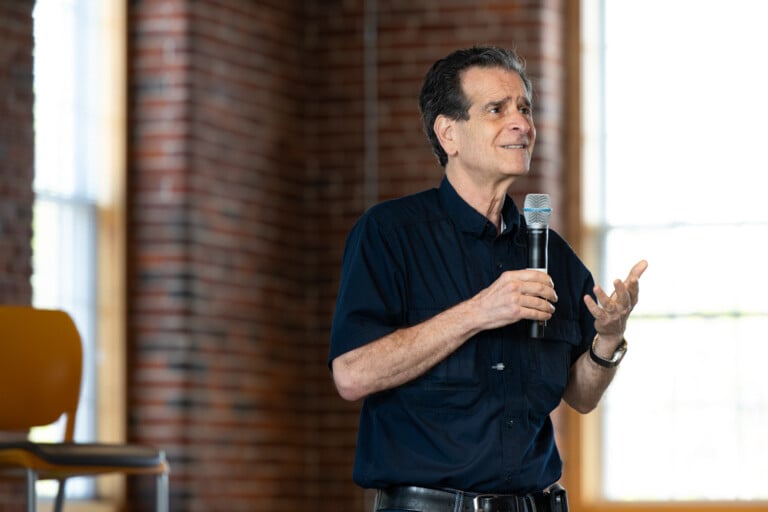(Opinion) PBM reform is the bipartisan solution patients need
Reform bill cosponsored by U.S. Sen. Maggie Hassan would break the link between PBM compensation and drug prices

The Department of Defense has committed $100 million over the next 10 years to the Advanced Regenerative Manufacturing Institute (ARMI), the regional effort headquartered in the Manchester Millyard to escalate the large-scale production of human tissue and organs, an ARMI official confirmed Thursday, May 9.
The funding is an extension of the original $80 million secured from the Department of Defense (DOD) by inventor Dean Kamen in 2017 and comes on the heels of the designation last fall of ARMI as a federal Tech Hub by the U.S. Department of Commerce.
“The important piece is that $50 million over five years has already been committed. And then there are five one-year options for $10 million per year,” said Maureen Toohey, ARMI’s deputy executive director.
Kamen alluded to the new funding round during a keynote address Thursday morning to a group of more than 100 people from the real estate and construction industry gathered for a conference at Kamen’s DEKA headquarters.
“The feds just announced that ARMI’s getting another $100 million,” Kamen told the group at the event hosted by construction management firm Fulcrum and the New England Real Estate Journal.
The agreement between ARMI and the Defense Department was signed in March, Toohey said. Like the original agreement, it requires a cost-sharing match of funding and in-kind services, which she expects will be dollar for dollar.
The extension builds on additional funding the project has secured since 2017, including $44 million in 2022 from the Economic Development Administration as part of the Build Back Better Regional Challenge. The regional effort, which includes Nashua, has been dubbed “ReGen Valley.”
“The continuation of the DOD funding gives us foundational funding for the continued development of the manufacturing processes and platforms,” Toohey said. “The real estate component, along with the Economic Development Administration and Tech Hub designation, gives us the commercialization and place-based funding that is necessary for the ReGen Valley to become an epicenter for regenerative medicine.”
ReGen Valley is predicted to generate 9,000 jobs over the next several years and thousands more from related industries that will support it.
“We’re in a roomful of people that are worried about real estate. I hope you are good at what you do. I hope you focus on building out enough infrastructure,” Kamen said.
At the heart of Thursday’s conference — which included a panel discussion featuring representatives from ARMI, state and local government, and the life sciences industry — was the challenge to Manchester and the surrounding region to create the workforce, housing and other infrastructure needed to support an industry that is just beginning to take root and expected to grow quickly in the years ahead.
How can the city and the surrounding communities attract the young workforce ARMI will need to grow the industry?
How can the region create the right mix of housing so that it will both attract new workers and not become too expensive for the people who already live here?
What’s not in question: The race is on.
“We now have proven that we are on the precipice of creating an entire new industry,” Kamen said.